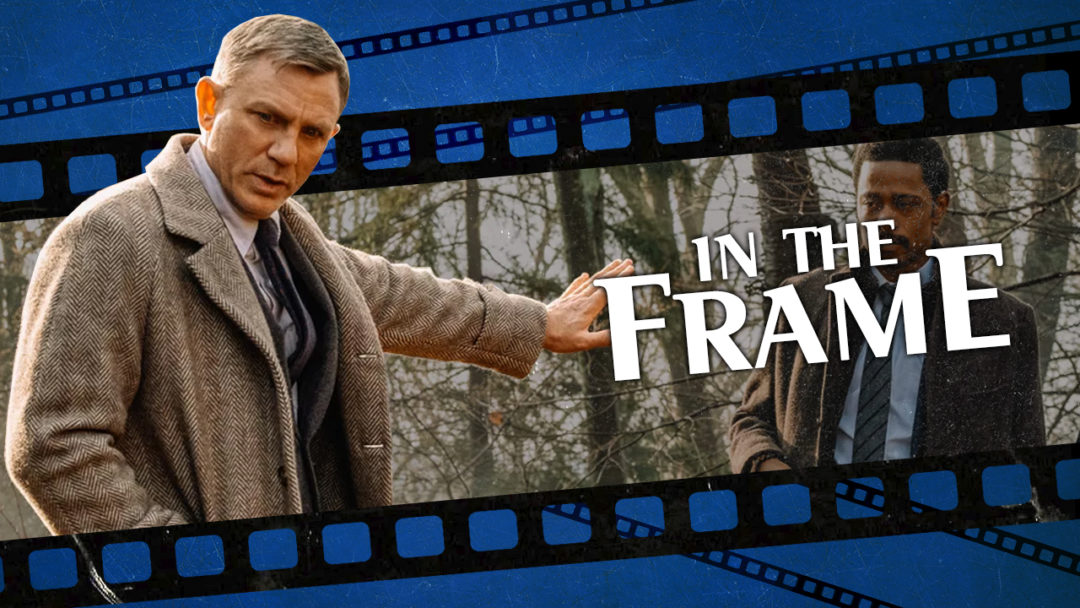Note: This article contains spoilers for Knives Out.
Knives Out belongs to a rich tradition of murder mysteries fascinated with class dynamics. It draws heavily from the work of Agatha Christie, with Daniel Craig’s Benoit Blanc feeling like a distant cousin of Hercule Poirot. Christie’s mysteries often unfolded against opulent backdrops, her detectives probing the world of the super wealthy. Some of this added a little exotic flavor, but it also repeatedly reinforced the idea that the rich were not to be trusted.
Even outside of the work of Agatha Christie, detective shows like Columbo would return time and time again to the world of the upper classes. The scruffy trenchcoated detective would often find himself matching wits with the wealthy and powerful, constantly outwitting those vipers. There is a solid argument to be made that Columbo contained “a subtle level of class warfare.”
Knives Out centers on the murder of millionaire mystery writer Harlan Thrombey (Christopher Plummer). Thrombey has an estate worth over $64 million, a publishing empire with 80 million books sold worldwide, and a massive mansion that he has decorated with elements from his own story. “The guy practically lives in a Clue board,” Lieutenant Elliott (LaKeith Stanfield) remarks.
However, Knives Out focuses as much on the dysfunctional dynamics of the Thrombey family as it does the mystery of their father’s death. The movie opens after the funeral, but it builds for most of its first half towards the will reading. When Harlan’s lawyer (Frank Oz) reveals that Harlan left everything to his nurse Marta (Ana de Armas), all hell breaks loose. The family cannot have that.
Knives Out plays into a lot of the racial and social anxieties of the modern era. The Thrombeys pride themselves as being open-hearted and fair-minded towards Marta, the immigrant help. Even though none of them can bother to remember her country of origin, they all remark that she is “part of the family” and that they want to “take care” of her after Harlan’s passing.

Although Donald Trump is never mentioned by name, he is the focus of a discussion midway through the film. Richard (Don Johnson) and Donna (Riki Lindhome) argue that immigrants are coming to the country in order to steal the birthrights of honest, hard-working Americans. It is no small irony that this argument is advanced by two members of the Thrombey family who married into wealth.
These fears are literalized when Marta is made sole inheritor to Harlan’s massive fortune. She displaces the family, taking control of their house and their fortune. This brings all of their simmering xenophobia into the open. Jacob calls her a “dirty anchor baby,” while even the black sheep Ransom (Chris Evans) complains about Marta usurping his “birthright” and “ancestral home.”
This taps into some of the underlying anxieties of the modern anti-immigrant movement. The Thrombeys are experiencing their own demographic displacement and the loss of privilege that they have long enjoyed but never earned. Knives Out offers a beautiful microcosm of the modern political moment in its striking final shot, the Thrombeys realizing their home now belongs to Marta.
Knives Out arrives as part of a wave of mass media grappling with class anxieties. These stories are being told in a variety of ways. Some of these are awards contenders, like Parasite. Some of these are more populist entertainment, like Ready or Not or Joker. It’s also possible to contextualize them as part of a larger movement dealing with the wake of the 2008 financial crisis, like Hustlers.
However, modern approaches to these kinds of stories are shifting in how they portray the wealthy and the powerful. These stories seem increasingly skeptical about the idea that the wealthy are especially smart or shrewd. They seem more willing to argue that wealth and power are insulating factors that are more likely to coddle and soften those who wield them.

Knives Out is a murder mystery, but it is also a comedy of errors. The mystery at the center of the plot is complicated by the ineptitude of the various actors. Benoit Blanc finds it almost impossible to solve the case because there is no singular intent guiding events, no master plan. There is just a confluence of circumstances that aligned to lead to the death of Harlan and the ensuing chaos.
Ransom tried to murder Harlan by switching his medication, hoping that Ana would give him an overdose of morphine. However, Ana gave Harlan the medicine that Ransom had mislabeled as morphine. Harlan committed suicide to protect Marta. Ransom is only responsible for a murder within the ensuing cover-up. He can’t even properly murder Marta, grabbing a prop knife by accident.
The Thrombeys are petty and short-sighted. After the reading of the will, Walt (Michael Shannon) shows up to threaten Marta. He implies that her undocumented mother might be deported. However, he assures her, the family has the resources to make her a legal immigrant. Marta immediately grasps how Walt overplayed his hand; if the family has the resources, now so does she.
This mirrors the approach taken in other contemporary stories about wealth. Ready or Not obviously riffs on The Most Dangerous Game, as a super wealthy family hunt their newest member through their estate. However, it quickly becomes clear that the family has absolutely no idea what they are doing. They consult YouTube tutorials on crossbow use and accidentally murder various house staff.
These sorts of stories have traditionally indulged in a myth of Social Darwinism. Film and television have always been skeptical of the wealthy and powerful yet afforded them a grudging respect; the conspirators on The X-Files were a credible threat to Mulder and Scully, while Potter was a devious operator in It’s a Wonderful Life.

The financial crisis may have changed the perception of the wealthy in media, demonstrating that wealth and power were often illusory. The lack of consequences for those responsible and the eagerness with which they were bailed out may have reinforced the idea that the upper classes are protected more by their wealth than by their wits. In Knives Out, Benoit Blanc even warns the Thrombeys that “there will be no bailout this time.”
Similarly, the continued success of President Donald Trump may also have informed this shift in the portrayal of the wealthy. After all, Trump is a billionaire despite have declared bankruptcy six times. His brand also defines himself as a self-made man, despite receiving a loan from his father equivalent to $413 million. Again, Knives Out alludes to this. Ransom mocks his mother Linda’s (Jamie Lee Curtis) assertion that she is a self-made woman, pointing out the starter loan from Harlan.
It may also reflect something less specific and more basic. The American Dream is rooted in the idea that anybody with a good idea and a strong work ethic can come to the United States and succeed. However, statistics reveal this to be an increasingly outdated idea. Social mobility is plummeting. The income gap is wider than ever. It is easy to see why the perception of the wealthy may have shifted in recent years.
As with classic detective stories like Murder on the Orient Express, Knives Out focuses on the gulf that exists between illegality and injustice. Blanc is hired to investigate a mysterious death, but he unearths a far more insidious sort of crime. Late in the film, he confirms that he suspected Marta from the outset but felt compelled to probe further into the real crimes on the Thrombey estate.
As demonstrated by the stories of Agatha Christie and even shows like Columbo, detective fiction has always been wary of the wealthy. Knives Out adds its own twist to that rich tradition: Maybe they aren’t too sharp, either.






Published: Dec 6, 2019 11:00 am